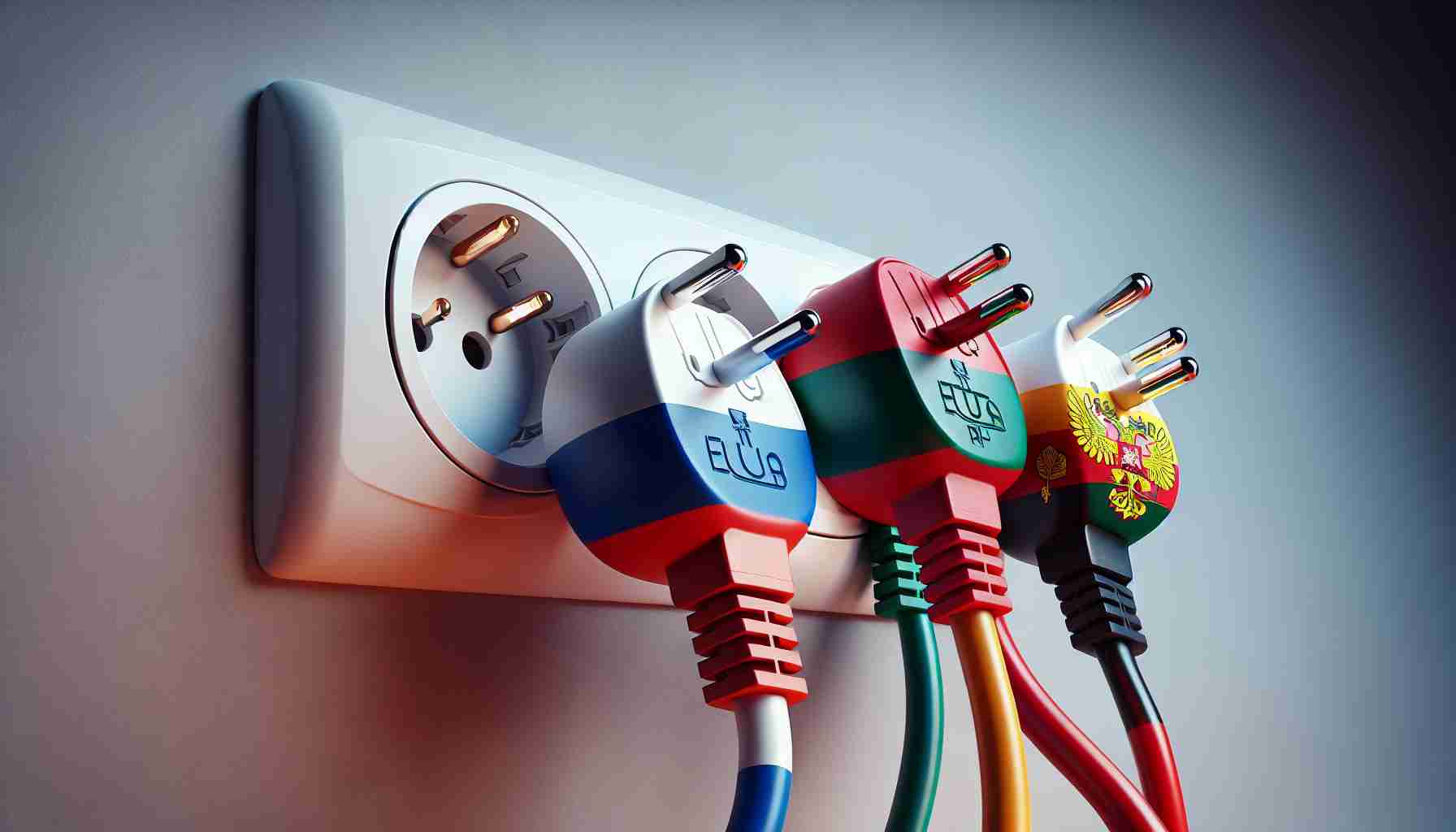- The Baltic nations—Estonia, Latvia, and Lithuania—have cut electricity ties with Russia, aligning with EU networks.
- This disconnection highlights their pursuit of energy autonomy and defiance of Russian influence.
- Lithuania’s energy minister celebrated achieving local control over the region’s energy system.
- Since the early 1990s, these nations have worked to sever ties with Russia, accelerating efforts after Crimea’s annexation in 2014.
- They invested €1.6 billion in grid modernization and ceased Russian energy imports following the 2022 invasion of Ukraine.
- The shift represents a symbolic and practical move to prevent Russian energy from being used as leverage.
- Baltic leaders assure stability in the new energy framework, downplaying sabotage allegations against Russia.
In a bold move signaling a new era of independence, the Baltic nations of Estonia, Latvia, and Lithuania have cut their electricity connections to Russia, marking a pivotal shift toward energy autonomy and closer ties with the European Union. This historic disconnection, executed over the weekend, showcases their defiant stance against Russian influence. On Sunday afternoon, the Baltics joined European power networks through Finland, Sweden, and Poland, ensuring a robust alignment with Western Europe.
Lithuania’s energy minister proudly declared that the region’s energy system is now under local control, celebrating the culmination of a long-sought goal. Since gaining independence from the Soviet Union in the early 1990s, these nations have gradually moved away from Moscow’s grip—a process accelerated by Russia’s annexation of Crimea in 2014. Investing approximately €1.6 billion to modernize their grids, the Baltics stand united in support of Ukraine, having ceased all Russian energy imports following the 2022 invasion.
For Estonia, Latvia, and Lithuania, this energy shift is both a practical and symbolic severing of ties, aimed at eradicating the possibility of Moscow using energy as a geopolitical weapon. Meanwhile, Russia’s response includes strengthening its Kaliningrad exclave with strategic investments.
Despite tensions, Baltic officials assure that their new energy framework is stable and undisruptive, fostering an environment of reliability and growth. Allegations have surfaced against Russia for underwater cable sabotage, yet Sweden has downplayed recent incidents as unintentional.
This energy emancipation underscores a powerful message of resilience: the Baltics are writing a new chapter in their history, wielding their own power—literally and figuratively.
How the Baltic Energy Independence is Shaping the Power Landscape
The Transformation of Baltic Energy: What You Need to Know
The recent move by Estonia, Latvia, and Lithuania to sever electricity ties with Russia is more than just an energy shift. It is a strategic declaration of independence and alignment with the European Union, ushering in a new era of energy autonomy for the Baltics. What does this mean for the region, and what are the implications for the broader geopolitical landscape?
Pros and Cons of the Baltic Energy Shift
Pros:
– Energy Independence: The Baltics are now free from the influence of Russian energy policy, reducing the risk of energy being used as a geopolitical tool against them.
– European Alignment: By connecting with Finland, Sweden, and Poland, these nations are now firmly integrated into the European power network, enhancing regional cooperation.
– Economic Stability: Local control over energy supply increases stability and predictability, fostering potential economic growth and investment.
Cons:
– Initial Costs: The transition required a significant investment of around €1.6 billion to modernize the power grids.
– Short-term Disruptions: While the officials assure stability, unforeseen glitches during the transition period could pose temporary challenges.
– Geopolitical Tension: Severing ties with Russia could lead to increased political tension in the region, requiring careful diplomatic navigation.
Innovations and Security Aspects
One of the crucial developments is the modernization of the Baltic power grids. Advanced technology has been deployed to ensure efficiency, reliability, and security against potential threats. While there have been allegations of underwater sabotage by Russia, the resilience of the system is being tested and monitored.
Sustainability and Environmental Impact
As part of the transition, the Baltics are exploring renewable energy sources to generate cleaner electricity. This not only bolsters energy security but also contributes to the global effort to combat climate change. Harnessing wind and solar power, especially from the Baltic Sea, presents an opportunity for sustainable growth.
Future Predictions and Market Forecasts
Experts predict continued momentum in the Baltic energy sector, with the potential for further integration and collaboration within the EU. By standing with Ukraine and opposing Russian aggression, these nations are likely to emerge as champions of European energy solidarity, potentially influencing market dynamics across the continent.
Compatibility and Use Cases
The current infrastructure is compatible with neighboring EU nations, supporting greater flexibility and resource exchange. Estonia, Latvia, and Lithuania are also poised to explore innovative energy solutions such as smart grids and storage systems, which can provide additional resilience and meet diverse consumption needs.
Market Insights and Economic Impact
The shift is expected to attract international investment and partnerships. The commitment to energy independence resonates positively with investors seeking stability and growth opportunities in emerging markets. Consequently, we can anticipate economic revitalization in the region, opening new avenues for business and technology.
Further Reading
For more detailed insights into European energy policies and innovations, you can visit the main domain of the European Commission’s Energy portal: European Commission.
This bold step by the Baltics is not just about energy; it represents a strategic repositioning on the world stage, with implications that extend far beyond their borders. The world watches closely as they continue to define their future, wielding newfound power both literally and figuratively.
